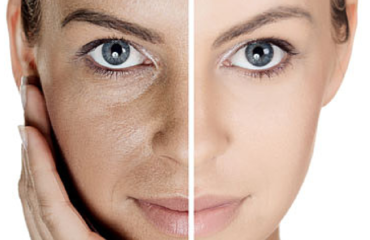
MONDAY, 24 APRIL 2023 / PUBLISHED IN BLOG
Ozone therapy is a promising alternative medical treatment that has gained popularity in recent years. It involves the administration of ozone, a form of oxygen, to treat various medical conditions, ranging from chronic pain to infections. Although the scientific evidence on the effectiveness of ozone therapy remains limited, many people claim to have experienced significant health benefits from this alternative treatment. In this article, we’ll explore the potential benefits and risks of ozone therapy, as well as the latest research on this alternative medical treatment.
What is Ozone Therapy?
Ozone therapy is a safe, non-invasive, and effective alternative medical treatment that has been used for over a century. It involves the administration of ozone, a gas made up of three oxygen atoms, to the body in various forms, such as injections, insufflations, or topical applications. Ozone is a powerful oxidant that can damage cells and tissues, which can have positive or negative effects, depending on the form and amount of ozone used.
One of the key benefits of ozone therapy is its ability to improve blood circulation and oxygen delivery to the tissues, which can help reduce inflammation, support wound healing, and boost immune function. Additionally, ozone therapy is believed to have antimicrobial and antiviral properties, which may help fight infections caused by bacteria, viruses, and fungi.
Potential Benefits of Ozone Therapy
Ozone therapy has been used to treat a wide range of medical conditions, including:
- Chronic Pain: Ozone therapy may help reduce pain and inflammation in conditions such as osteoarthritis, herniated discs, and fibromyalgia.
- Infections: Ozone therapy may help fight infections caused by bacteria, viruses, and fungi, including Lyme disease, hepatitis, and HIV.
- Autoimmune Diseases: Ozone therapy may help reduce inflammation and improve immune function in conditions such as multiple sclerosis, rheumatoid arthritis, and lupus.
- Skin Conditions: Ozone therapy may help treat various skin conditions, including eczema, psoriasis, and acne, by improving blood circulation and oxygenation.
Moreover, ozone therapy is a safe and non-invasive treatment that doesn’t have the side effects commonly associated with traditional medical treatments. It’s also relatively inexpensive and can be administered in a variety of settings, including clinics, hospitals, and private practices.
Latest Research on Ozone Therapy
Although the scientific evidence on the effectiveness and safety of ozone therapy remains limited, some recent studies have suggested that ozone therapy may have potential health benefits in certain conditions.
- Immunomodulatory Properties: A study published in the Cuban journal of immunology describes the immunomodulatory properties of ozone therapy by characterizing the biological effects of ozone on immune system cells, soluble mediators, and other cell types.
- Pain Management: A 2022 review on ozone therapy in pain medicine highlights the high safety of pain treatments with ozone therapy, especially modern medical ozone generators with great precision.
- Diabetic Pain Relief: A 2020 study on systemic ozone therapy in insulin-dependent diabetic patients found that the analgesic and anti-inflammatory properties of ozone make it one of the most efficient therapeutic tools for controlling chronic pain in insulin-dependent diabetic patients.
Conclusion
Ozone therapy is a promising alternative medical treatment that has been used to treat various medical conditions. Many people claim to have experienced significant health benefits from this alternative treatment. Furthermore, ozone therapy is a safe and non-invasive treatment that doesn’t have the side effects commonly associated with traditional medical treatments.
If you’re interested in ozone therapy, make sure to do your research, ask questions, and consider this alternative medical treatment as a potential option for your health concerns. It’s important to stay informed about the latest developments in stem cell therapy. You can learn more about regenerative medicine and stem cells by enrolling in our international certification program at www.issca.us.




